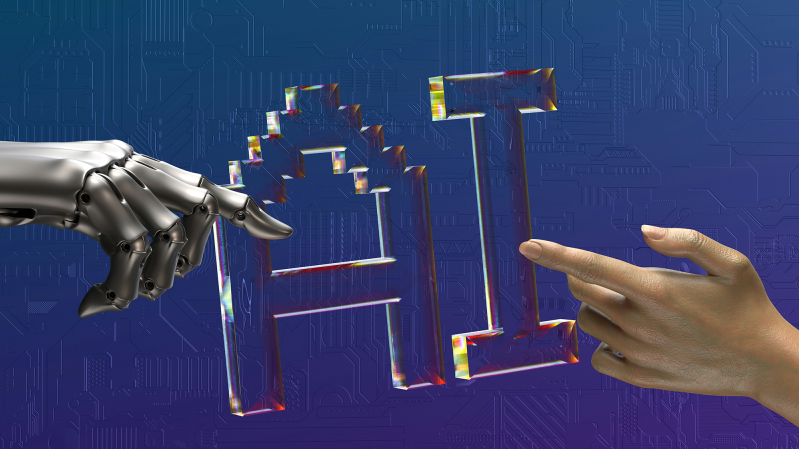
At a time when artificial intelligence (AI) is rapidly reshaping global education, theological institutions are wrestling with what the future looks like for Christian learning and leadership. At the recent Global Consultation of the International Council for Evangelical Theological Education (ICETE), held from March 3–7 in Tirana, Albania, one of the discussions revolved around the intersection of faith and innovation: how AI is being understood and applied in evangelical theological education.
The facilitator of those conversations, Dr. Walker Tzeng, executive director of the World Evangelical Theological Institute Association (WETIA) and vice president of Olivet University, spoke with Christian Daily International about the challenges and opportunities related to AI and theological education.
With years of experience in both technology and theology, Tzeng has long worked to bridge the gap between digital transformation and theological training.
“In the beginning, it was specifically helping schools in the majority world with education technology,” Tzeng said. “Traditionally that meant online education, especially as the internet was first being used for communication and teaching. Our focus was: How can we best use this tool for theological education and improving learning?”
Over the past two decades, online education has shifted from novel to normative. According to Tzeng, the questions have changed. “Today, online education is the norm,” he said. “There are a wide range of tools and platforms available, and institutions are using them. The real cutting edge now is AI.”
Theology in the age of AI
Tzeng leads a specialized AI subgroup within ICETE’s broader Technology and Innovation in Learning impact group. This community explores how technological tools—particularly AI—can support theological schools in areas ranging from pedagogy to curriculum development. But for Tzeng, the questions run deeper than mere application.
“We’ve divided the AI conversations into two interest groups,” he explained. “One is the practical side—how to equip schools, students and faculty to engage with AI wisely. The other is the conceptual: What do we, as evangelicals, believe about AI and its relationship to humanity created in the image of God?”
These discussions raise profound theological questions. “AI forces us to reflect on what it means to be human,” Tzeng said. “Once we understand that, we can better decide how to develop and use this technology in education and in the church.”
Grappling with fears and possibilities
Within the ICETE impact group, participants have generally shown openness to exploring AI’s potential, while also acknowledging risks. “Naturally, the group leans toward the favorable side of the discussion,” Tzeng noted. “But we’re not ignoring the dangers.”
Theological educators, especially in the majority world, are not as behind as some might assume, he said. “There’s a common perception that Christians are always late adopters of technology. But that’s not true—especially in the Global South. We have our ear to the ground, and we’re innovating in ways that directly serve communities.”
Still, he added, “AI is different in that it hasn’t been innovated by the Church. It’s a tool developed largely by big tech. So, while we may not be the creators, we can be early adopters in using it for good.”
When it comes to practical use in theological education, Tzeng says schools are beginning to recognize that AI interaction is not a binary issue.
“In the past, it was easy to draw a line between plagiarism and original work,” he said. “But AI makes that more complex. You have students who might use AI to help generate ideas, to summarize resources, or even to improve their own writing. There’s now a wide spectrum of use.”
On one end, there are clear ethical violations—such as copying entire AI-generated essays. On the other, there are benign uses, such as proofreading or rephrasing assistance. In between is a gray area where institutions are starting to develop their own boundaries and best practices.
“Different schools will draw the line in different places,” he said. “That’s part of why this conversation is so necessary.”
The role of ICETE: a hub for dialogue and collaboration
As a global network for evangelical theological education, ICETE has positioned itself as a hub for dialogue and collaboration. Through its impact groups, it not only creates space for discussion but also seeks to produce actionable outcomes.
“What can ICETE do?” Tzeng asked rhetorically. “That’s exactly what we’ve been discussing. First, resourcing institutions—providing best practices, examples of ethical policies, and theological frameworks for AI use. We can gather what’s already being done and share it widely.”
Second, he said, the ICETE Academy could play a direct role in offering coursework related to AI. These might be aimed at faculty, students or administrators to help them understand and responsibly implement AI in their contexts.
Finally, Tzeng sees value in simply continuing the conversation. “We need to begin a robust theological dialogue on AI—how it relates to theology, humanity, society,” he said. “And from that, perhaps develop guidelines or resources that help shape how the church and theological institutions approach this.”
‘AI is not a human; it is a tool’
Asked about his personal view on AI, Tzeng emphasized education and understanding as key.
“I think the main thing is understanding what AI is and how it works,” he said. “A lot of people interact with AI as if it’s a human. But it’s not—it’s a tool. And we, as people made in God’s image, have the responsibility to use it well.”
He likened the moment to earlier technological shifts, such as the emergence of personal computers or the internet. “At first, there’s fear. Then people begin to engage, to play with the technology, to learn its strengths and limitations. Eventually, we figure out how to use it to serve others and to build the kingdom.”
For Tzeng, AI offers potential for theological education to be more accessible, relevant and effective—especially in regions where educational resources are limited. But that will require not just technical knowledge, but spiritual discernment.
“This isn’t just about tech,” he said. “It’s about theology. It’s about education. It’s about human flourishing. If we approach AI with humility, wisdom and a commitment to the gospel, it can become a powerful tool in our mission.”
As institutions continue to grapple with the ethical, pedagogical and theological implications of AI, leaders like Tzeng hope that global collaboration will help shape a thoughtful and faithful response.
“What we’re doing now is laying the groundwork,” he said. “We don’t have all the answers yet. But we’re asking the right questions, and we’re doing it together.”
At the heart of that process, he said, is a belief that the gospel must guide innovation—not the other way around.
“As we engage with AI, we have to keep Christ at the center,” he concluded. “It’s not about being trendy or reactive. It’s about preparing the next generation of leaders to think deeply, act wisely and serve faithfully in a changing world.”





